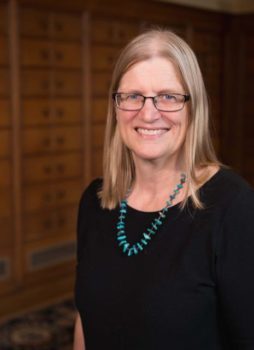Faculty Senate Presents Award To Provost Carol A. Fierke And Team

The Texas A&M University Faculty Senate presented the inaugural Shared Governance Award to Texas A&M Provost and Executive Vice President Carol A. Fierke and her team for being “a Texas A&M administrator who best exemplifies the practice of shared governance.”
The meeting was held virtually on Zoom on Sept. 14, and Fierke was given a certificate afterward.
“Provost Fierke has clearly earned this award through her efforts to include faculty in the decision-making process for many issues affecting faculty this year, most notably (but not exclusively) the extensive planning and preparation for teaching this fall semester during the COVID-19 pandemic,” said John N. Stallone, speaker of the Faculty Senate and a professor in the College of Veterinary Medicine and Biomedical Sciences. “Although the Senate Leadership (Speaker, Speaker-Elect, and Secretary) routinely meets with the Provost monthly, we have met with her many more times this last spring and summer to deal with faculty-related issues affected by the COVID pandemic. She has been most generous with her time to address our concerns and involve the faculty in the decision-making process.”
The award will be given in the future to recognize those who value and practice shared governance, Stallone said.
Dale Rice, speaker-elect of the Faculty Senate, described shared governance as “more than consulting with faculty. It involves transparency in the decision-making process.”
Rice, an instructional associate professor in the Department of Communication/Journalism Studies, added, “As the pandemic hit higher education this past spring, one of the great things about working with the Provost and her team was the degree to which they were open and honest about decisions and the impact they would have on faculty, staff, and students.”





